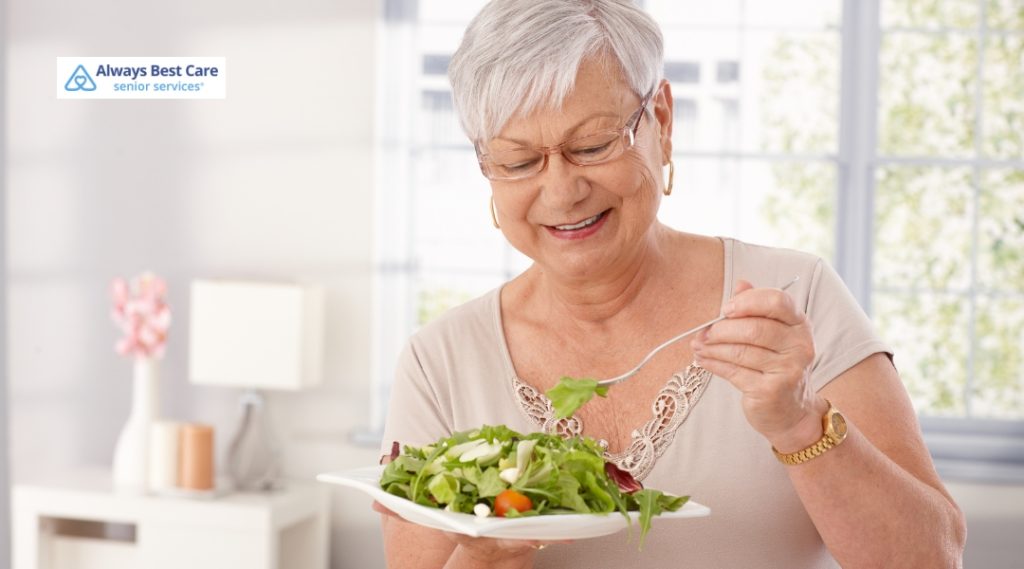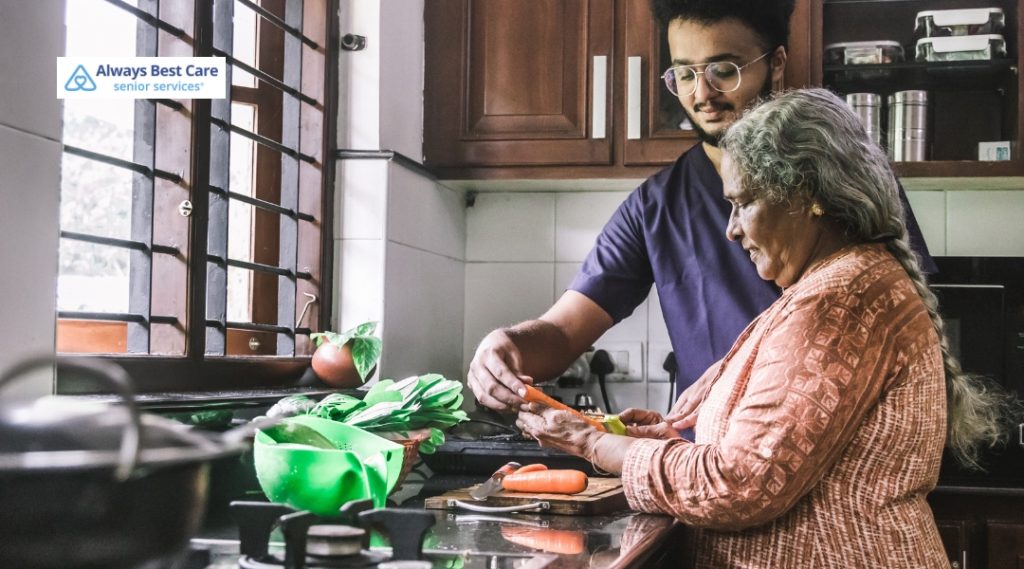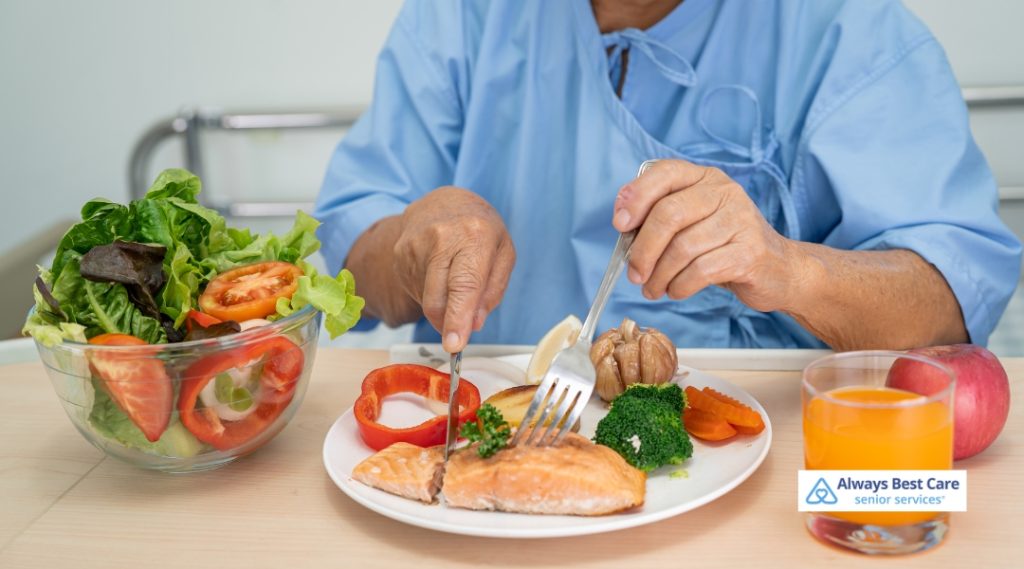Encouraging Healthy Eating: How to Boost Your Senior’s Appetite in Chapel Hill, NC

Watching a senior struggle with a fading appetite can be tough, especially when you know good nutrition is the backbone of their health and happiness.
If meals have become more of a chore than a joy for your loved one in Chapel Hill, NC, don’t fret. There are plenty of ways we can encourage healthy eating and bring back those mealtime smiles.
Let’s chat about why appetites dip as we age and how simple shifts can boost both their interest in food and overall well-being.
What you will learn:
- The common reasons why seniors may experience a loss of appetite.
- Practical strategies to make meals more appealing and enjoyable for seniors.
- Tips for adapting meal routines to better support seniors’ nutritional needs and comfort.
- How professional caregiving services in Chapel Hill, NC, can help boost your loved one’s appetite and overall well-being through personalized meal support and companionship.
Table of Contents
Why Does Appetite Drop With Age?
Before jumping into solutions, it helps to understand what might be causing that lost hunger pang:
- Medications that cause nausea or dry mouth.
- Dental troubles or dentures that don’t fit quite right.
- Trouble chewing or swallowing certain foods.
- Feelings of loneliness, depression, or grief.
- Chronic health issues affecting energy levels.
- Changes in taste buds and sense of smell.

Making Meals More Inviting for Seniors
Let’s face it—looks matter! Seniors are way more likely to dig into meals that look colorful and smell delicious. Here are some tricks we’ve found that work wonders:
- Add vibrant fruits and veggies for visual pop.
- Use herbs like basil or rosemary instead of extra salt for flavor boosts.
- Serve food on bright plates rather than dull ones.
- Set the mood with soft lighting and gentle background tunes.
Creating this welcoming vibe at mealtime makes eating feel less like a task and more like an event worth enjoying.
Smaller Portions Served Often: The Secret Sauce
Big plates piled high? That may scare off someone with a tiny appetite. Instead:
- Offer three small meals plus 2–3 nutrient-packed snacks daily.
- Think easy bites like yogurt cups, smoothies loaded with fruit & protein powder, cheese slices, and nuts.
- Keep portions manageable so they’re not overwhelmed, but still getting enough calories.
This approach keeps energy steady without turning every meal into an uphill battle[3].

Sharing Meals Makes All the Difference
Who doesn’t love company at the table? For many seniors living solo around Chapel Hill, dining alone dims the appeal of food itself.
Try:
- Sitting down together even once or twice weekly.
- Arranging visits from family members or friends during mealtimes.
- Having caregivers from Always Best Care join them for conversation while they eat.
The social spark often reignites interest and tastes better, too!
Simplify Eating With Soft & Tasty Choices
If chewing feels tricky or dentures pinch, soft foods become lifesavers:
- Scrambled eggs.
- Creamy mashed potatoes without lumps.
- Warm oatmeal sprinkled lightly with cinnamon.
- Hearty soups packed full of veggies.

Planning Ahead Keeps Things Fresh & Fun
Routine is comforting, but monotony kills enthusiasm fast.
Try these moves:
- Involve your loved one in picking recipes so they feel included.
- Prep ingredients ahead on low-energy days.
- Experiment by adding favorite comfort foods alongside new dishes.
A little creativity goes a long way toward breaking up boredom at mealtime.
How Always Best Care Helps Boost Senior Appetites in Chapel Hill
Handling all this solo? No need—we’re right here! Our caregivers pitch in by helping plan menus tailored just right for preferences and dietary needs.
Whether it means shopping errands to get fresh produce, cooking nutritious yet tasty meals, adjusting textures, encouraging hydration, or simply sitting together chatting during dinner, Always Best Care supports making every bite count towards better health.

FAQ
Q: What if my senior refuses most foods?
A: Start small—with familiar favorites—and gradually introduce new flavors alongside them so nothing feels forced.
Q: How often should snacks be offered?
A: Two to three snacks spaced between smaller meals help maintain steady energy without overwhelming hunger cues.
Q: Can medication side effects really impact appetite that much?
A: Absolutely! Dry mouth/nausea caused by meds often dull taste sensations, making eating less pleasant — talk openly with doctors about alternatives if needed.
Schedule Your Complimentary Consultation With Always Best Care of Chapel Hill Today!
If your aging loved one is struggling with appetite loss or needs support with daily routines, contact Always Best Care of Chapel Hill at (336) 948-9152 to schedule a care consultation. Our compassionate caregivers are here to support health, wellness, and independence—starting right at the kitchen table.





